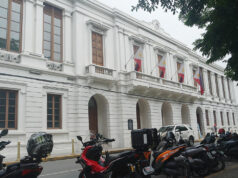BSP grants license to Tonik Digital Bank
THE BANGKO SENTRAL ng Pilipinas (BSP) approved the application for license of Tonik Digital Bank, Inc.
In Circular Letter No. 2020-060, BSP Deputy Governor Chuchi G. Fonacier said the Monetary Board approved the party’s application for a rural bank in the Philippines through Resolution No. 1979 dated Dec. 19, 2019.
“The corresponding Certificate of Authority to Operate as a rural bank was issued by the Bangko Sentral ng Pilipinas on 3 September 2020,” Ms. Fonacier said.
The lender officially started its local operations on Nov. 25.
Tonik Digital Bank is a unit of Singapore-based Tonik Financial headed by founder and Chief Executive Officer Greg Krasnov. The firm also has operations in India.
In June, Tonik Financial raised $21 million through a Series A funding round led by venture capital investors Sequoia India and Point72 Ventures. Proceeds were meant for the launch of their digital banking operations in the Philippines.
The all-online lender is looking to penetrate the market for underserved Filipinos.
“Loans will be a critical part of our mission in providing better and more accessible banking options to the Filipino market whose majority is currently underserved,” Mr. Krasnov said in a statement earlier this month.
Tonik Digital Bank inked a deal with Singapore fintech startup CredoLab to facilitate the loan application process for its mobile app. The platform is expected to launch by the first quarter of 2021 and will allow users to open transactional savings accounts, time deposits, and to have access to consumer loans.
Existing local digital lenders CIMB Bank Philippines and ING Bank N.V. Manila started their all-online retail banking services in the country in 2019, luring clients through all-online loan applications and higher interest rates. East West Banking Corp. unit Komo and the Diskartech App of Rizal Commercial Banking Corp. are also positioning themselves with similar digital banking services.
The BSP last month approved a regulatory framework for digital banks, officially making it a separate classification from brick-and-mortar lenders such as commercial, thrift, rural, cooperative, and Islamic banks. — L.W.T. Noble



